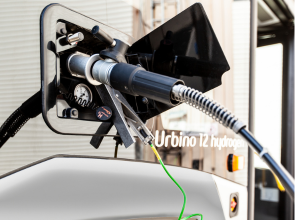Powering the zero-carbon trucks of the future
The consortium aims to prove a market for hydrogen by bringing together trucks.

BP is taking its first step into hydrogen mobility with plans to start building two hydrogen refuelling stations for trucks in Germany by 2024.
The refuelling stations in Düsseldorf and Berlin are part of a pilot project consortium coordinated by Daimler Trucks to test the technical feasibility of their hydrogen-powered fuel-cell, prototype, long-haul trucks.
The consortium aims to prove a market for hydrogen by bringing together trucks, fuel/fuelling stations and customers. It also aims to accelerate a full hydrogen value chain in Germany to help meet the country’s reduction target of more than 18 million tonnes of CO2 for road freight by 2030.
Under the deal, bp will design, construct and operate two hydrogen refuelling stations to support both subcooled liquid hydrogen (sLH2) and gaseous hydrogen refuelling, and procure the hydrogen for the stations. This will be made available to allocated fleet demand partners and the gas hydrogen will also be available to bp fleet customers who are not part of the pilot.
If hydrogen is going to help decarbonize heavy transport, the world needs the infrastructure to support it. Get the lowdown on a bp-backed project aimed at kickstarting the switch
Richard Bartlett, bp senior vice president, future mobility & solutions, says, “We’ll apply learnings to scale-up hydrogen refuelling stations across Germany and Europe using bp’s evolving hydrogen ecosystem.
